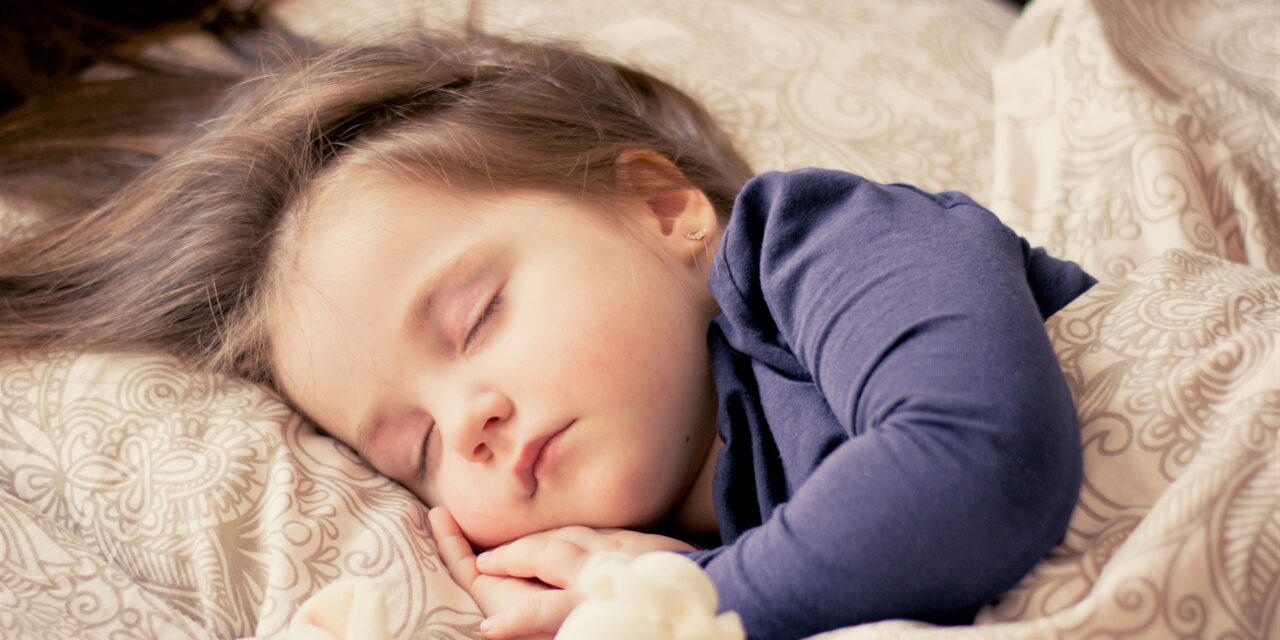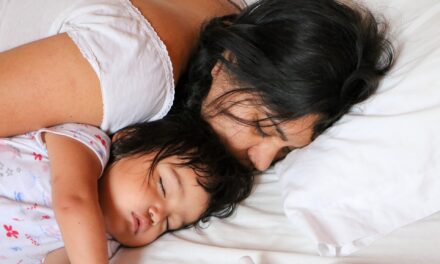Many children suffer from night terrors and nightmares, but the majority of children eventually outgrow them. Night terrors are distinct from nightmares in that they only occur during the night. Night terrors occur when a person, usually a child is jolted awake from a deep, non-dream sleep. Your child will not be fully awake during these episodes, and he or she will most likely have no recollection of them the following morning.
In addition to the screams and thrashing around that happens during one of these episodes, a child suffering from night terrors may not be able to recognise you if you attempt to comfort them, they may seem like they are afraid of you and try to get away from you. It can be distressing to witness a night terror occurrence but is important to know that your child will not suffer any long-term psychological consequences as a result of having them.
In the course of dream sleep (REM sleep), nightmares can occur. In some cases, your child may awaken from their nightmare and, depending on his or her age, they may be able to recall and describe the disturbing dream to you. Detailed descriptions of both night terrors and childhood nightmares, as well as suggestions for what to do in these situations, follow.
What to expect from our article
How common are night terrors?
Night terrors are common in children, usually between the ages of three and eight years old. Screaming, shouting, and thrashing around in extreme panic are all common responses for children who have night terrors. Some children can even jump out of bed during this state of extreme panic. Although their eyes may be open, they will not be fully awake during this time.
In most cases, episodes of night terrors begin during the early hours of the morning and can last for several minutes. They may also occur more than once during the course of a single night as they cycle throughout the different stages of sleep.
Why do they happen?
Children who have a family history of night terrors or sleepwalking episodes are more likely than other children to suffer from night terrors during their childhood years. Given that night terrors occur when deep sleep is interrupted, anything that increases your child’s likelihood of waking up suddenly from a deep sleep, such as excitement or anxiety, a loud noise, or even a full bladder, can cause an episode of night terrors to occur.
How to manage night terrors
If your child is experiencing night terrors, the most important thing to do is to remain calm and wait until they have calmed down completely. You should avoid interfering or interacting with them unless they are in danger. Even though night terrors can be frightening to witness, they are not harmful to your child.
When your child is experiencing an episode, you should avoid attempting to wake them. If you try to comfort them, they may not recognise you and may become even more agitated as a result. Even though your child will not remember the episode the next morning, it may be beneficial to have a general conversation with them to find out if there is anything that is worrying them and causing the episodes. Try to avoid making your child feel anxious, by discussing the night terrors with him or her in a way that will exacerbate their anxiety.
Depending on how frequently your child experiences night terrors and whether they begin occurring at a specific time during the night, you may want to consider waking him or her to prevent the night terror from occurring altogether. As a result, their sleep pattern may be disrupted just enough to prevent any further incidents from occurring while not affecting the overall quality of their sleep.
When to see a doctor
The good news is that the vast majority of children eventually outgrow their night terrors and become normal happy healthy children, however, It is important to see your doctor if they are experiencing them more than once during the night, or most nights. you should consult with your doctor to determine whether or not these episodes are being triggered by something else, enlarged tonsils, for example, could be causing breathing difficulties in your child causing him or her to wake up in the middle of the night.
Are nightmares the same as night terrors?
Children between the ages of three and six years old are likely to experience nightmares. Nightmares are more terrifying than sleep terrors, in my opinion. Children who have nightmares usually awaken from them and are able to recall specific details of their dreams but children who experience sleep terrors are completely unaware of what is happening to them. Children who have had night terrors the night before usually have no recollection of them when they wake up the following day. Like night terrors the majority of children outgrow them.
The majority of the time, nightmares occur later in the night and are accompanied by strong emotions such as fear, panic, distress, and/or anxiety. Children can have nightmares if they are exposed to something frightening, such as a scary movie, or if they are concerned about a particular situation.
What to do if your child has nightmares
Have a conversation with your child to determine whether or not they are experiencing anything that may be causing them to have nightmares. It is critical to establish a calming bedtime routine for your child in order for them to sleep peacefully and comfortably. If your child is experiencing recurrent nightmares, it is recommended that you take your child to the doctor for an assessment. It is possible that your child’s nightmares are being brought on by a traumatic event in their past. In this case, they may benefit from professional counselling services.











